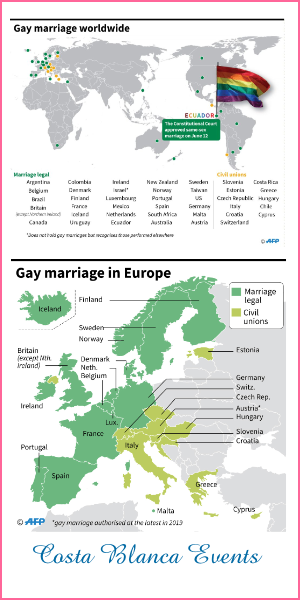The answer to 'can you get married in another country' is not an easy one. The answer depends on 2 things; the preferences of the wedding couple, and the destination.
Let's talk about the wedding couples' preferences first.
Increasingly more wedding couples distinguish different types of weddings, and often a combination is chosen.
- The civil wedding has vast administrative and financial implications but is usually of minimal emotional importance.
- The ceremonial wedding has no administrative, nor financial implications, but has enormous emotional importance.
- The religious wedding only has consequences within the church and can be very significant to the couple.
Couples nowadays often prefer to do the civil part in their home country.
In doing so, they avoid a lot of paperwork, translations and costs.
Before, or after the civil wedding, they celebrate their ceremonial wedding in a destination of choice.
So let's look at the first 2 options, and in the next topic, we'll discuss the religious wedding.
The civil wedding;
If the couple prefers to do the legal wedding also abroad, then the choice of destination becomes essential.
Each country, even within the E.U., has the right to determine the conditions for a civil wedding.
So, if you're considering a civil wedding abroad, you need to look at the conditions in the country of your choice.
After the legal wedding abroad, the marriage must be registered in your home country.
Often (legal) translations, stamps, taxes, etc. are required.
For Spain, these conditions are shown on our 'civil weddings in Spain' page.
The ceremonial wedding or wedding blessing ;
is when the bride and groom exchange vows in the presence of their closest family, friends and guests.
This is the wedding which is usually remembered for many years to come.
It's therefore often called 'the emotional wedding'.
De conditions and procedures for a ceremonial wedding are set by the officiant.
This person leads the ceremony, such as a certified wedding planner.
The association of wedding planners may require that ;
- The wedding couple is legally married before organising the ceremonial wedding, OR
- The wedding couple certify that at earliest convenience they will get legally married, OR
- The wedding couple have a civil partnership, OR
- The wedding couple renews their vows
The officiant must be convinced, and if requested, the wedding couple must be able to proof, that the conditions set to perform the ceremony are fulfilled. Translations are usually not required.
The procedure of a ceremonial wedding
The ceremony is very personal, and often also children of the couple are involved.
The officiant will need some information about the wedding couple.
This can be done via a personal interview, or by contacting (some of) the guest.
This information is used by the officiant to write a personal wedding ceremony.
At the end of the ceremony, the wedding couple and their witnesses, sign the ceremonial wedding certificate.
Often, family and guests are not told that the legal marriage is organised separately.
Related topics on this site and useful links ;
Differences between a civil, religious, and ceremonial wedding (15.1)
Civil weddings in Spain' (33.2)



